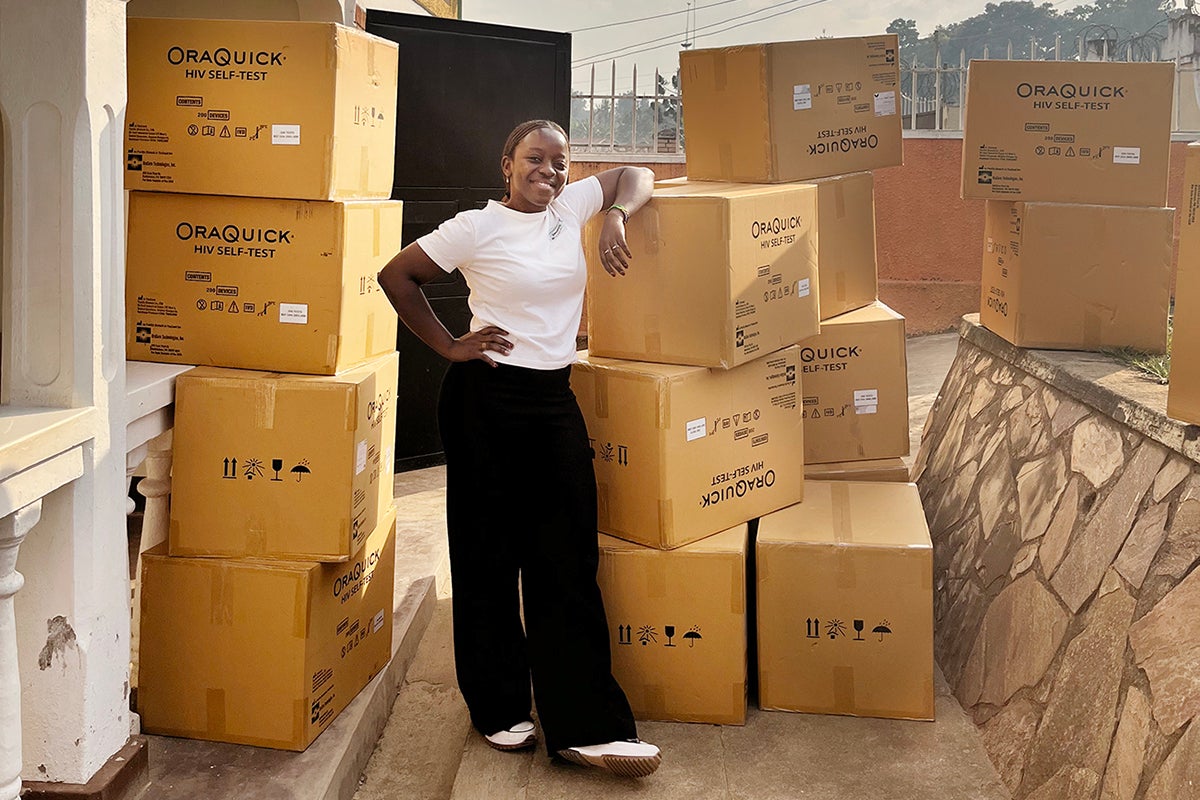Master of Science – Global Health and Population

Complete the form linked below to receive additional information about Harvard Chan School’s degree programs.
Summary
The Master of Science degree in Global Health and Population is designed to prepare individuals to advance global health research and reduce the burden of disease, especially in the world’s most vulnerable populations.
About
As a student in the 80-credit Master of Science in Global Health and Population program, you will:
- receive rigorous quantitative and qualitative training to advance knowledge of population and global health
- develop the analytical and methodological skills required to effectively respond to key challenges affecting population health in a global context
- work closely with world-renowned faculty members and researchers based in Boston’s Longwood Medical Area
- learn to communicate effectively and raise awareness of the biggest threats to global health
- join a department whose programs and projects span more than 30 countries across the world
- go on to pursue a meaningful career in applied research, policy analysis, and health education, or continue training in a doctoral program
On Campus (Fall start) • Full-time (2 years)
Curriculum
School requirements
- BST 201 Intro to Statistical Methods
- EPI 201 Introduction to Epidemiology: Methods I
- EPI 202 Epidemiologic Methods 2: Elements of Epidemiologic Research
- ID 100 Foundations for Public Health
Department requirements
- GHP 220 Intro to Demographic Methods
- GHP 230 Intro to Economics with Applications to Health & Development
- GHP 272 Foundations of Global Health and Population
- HPM 548 Responsible Conduct of Research
- Case Studies: Ethics in Global Health Research
- GHP 207 Risk Factors and Population Health
- GHP 212 The Political Economy of Health in LMICs
- GHP 506 Measuring Population Health
- GHP 299 Master’s Thesis
- Intermediate methods (10 credits)
The 2025-2026 Department Guide is available in PDF format and contains a list of course offerings, program requirements, and relevant contacts for specific degree programs. This document is a helpful resource for current and prospective students.
- ID 552 Innovations in Global Health Systems
- GHP 202 Comparative Health Systems I
- GHP 255 HIV Interventions, Rationale, Design & Evaluation
- GHP 504 Intro to Qualitative Research for Global Health
- ID 217 Nutrition and Global Health
Students may choose to focus elective coursework in global health or other disciplines such as epidemiology, nutrition, or health policy. The above list represents examples of popular electives in global health.
| Semester | Class | Schedule |
| Fall | BST 201 Introduction to Statistical Methods | T/TH 3:45-5:15pm + Lab* |
| Fall 1 & 2 | EPI 201 Introduction to Epidemiology / EPI 202 Epidemiologic Methods 2 | T/TH 9:45-11:15am + Lab* |
| Fall | GHP 272 Foundations of Global Health and Population | M/W/F 9:45-11:15am |
| Fall 1 | HPM 548 Responsible Conduct of Research | F 11:30-1:00pm |
| Fall 1 | GHP 230 Introduction to Economics | M/W/F 2:00-3:30pm |
| Fall 2 | GHP 220 Introduction to Demographic Methods | M/W/F 8:00-9:30am |
| Fall 2 | RDS 280 Decision Analysis for Health and Medical Practices | T/TH 2:00-3:30pm |
Competencies
- Identify and apply appropriate quantitative and qualitative methods to the analysis of international, national, regional, or local contemporary problems of public health
- Synthesize and integrate specialized knowledge and research skills in one or more areas of global health and population (e.g. demography, economics, epidemiology, human rights, law, politics, policy, and statistics) based on advanced course work and independent research study
- Evaluate and apply ethical consideration in global health research
Our Community
Each cohort is comprised of 15-20 students. Students in their first year will benefit from the prior experience of those in their second year. Peer relationships are developed through academic coursework, seminars, and social activities.
Throughout the degree, students are encouraged to engage with faculty on research projects and to participate in seminars that promote discussion and networking with members of the school-wide community.
I’ve always had a game plan to use my ambitions for advocacy, to embrace different perspectives, and to fully dive into public health in my work
Valencia Lambert, SM ’24
Latest News
-

‘The beauty of public health is its interconnectedness’
Global Health October 24, 2024
Career Outcomes
Graduates choose a variety of career paths in the broad areas of population and global health research. Some students continue academic training in a doctoral program, others have begun research careers with foundations such as the Population Council or the Bill and Melinda Gates Foundation, while others have worked for international health and development agencies, companies, and nonprofit organizations such as JSI, PATH, and R4D.
Eligibility Criteria
The admissions committee looks for candidates with:
- Bachelor’s (or equivalent) degree in a relevant discipline
- Strong academic potential, as demonstrated by grades in prior academic coursework and performance on standardized tests such as GRE or MCAT
- English proficiency for applicants for whom English is not their first language and who have not received degrees from a university where English is the language of instruction
- Prerequisite coursework in statistics AND calculus with a minimum grade received of B+ (SAS & Stata Introduction courses DO NOT meet this requirement)
- Relevant health or public health research experience: Most successful applicants have 1 year+ (post-baccalaureate) full-time public health research experience
Application Requirements
All applications must be submitted through SOPHAS – the centralized application service for public health programs. In addition to the application, applicants must submit:
- English proficiency (TOEFL/IELTS/Duolingo), if applicable
- Statement of purpose and objectives
- Official test scores (required)
- Three letters of reference
- Resumé/curriculum vitae
- Post-secondary transcripts or mark sheets (World Education Services credential evaluation for applicants with degrees from outside of the United States)
Application Deadline: December 1
Applicants may apply to only one degree program. Applications are reviewed in their entirety and decisions are released via email in late February/early March. Decisions are not released until all application components are received.
Unleash your potential at Harvard Chan School.
In addition to our degree programs, we offer highly targeted executive and continuing education, directed and taught by Harvard faculty.